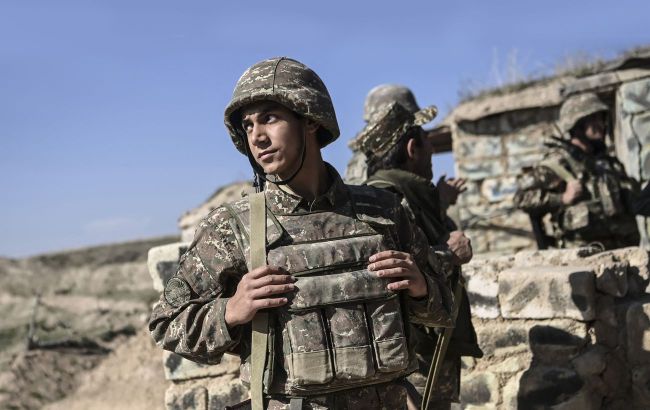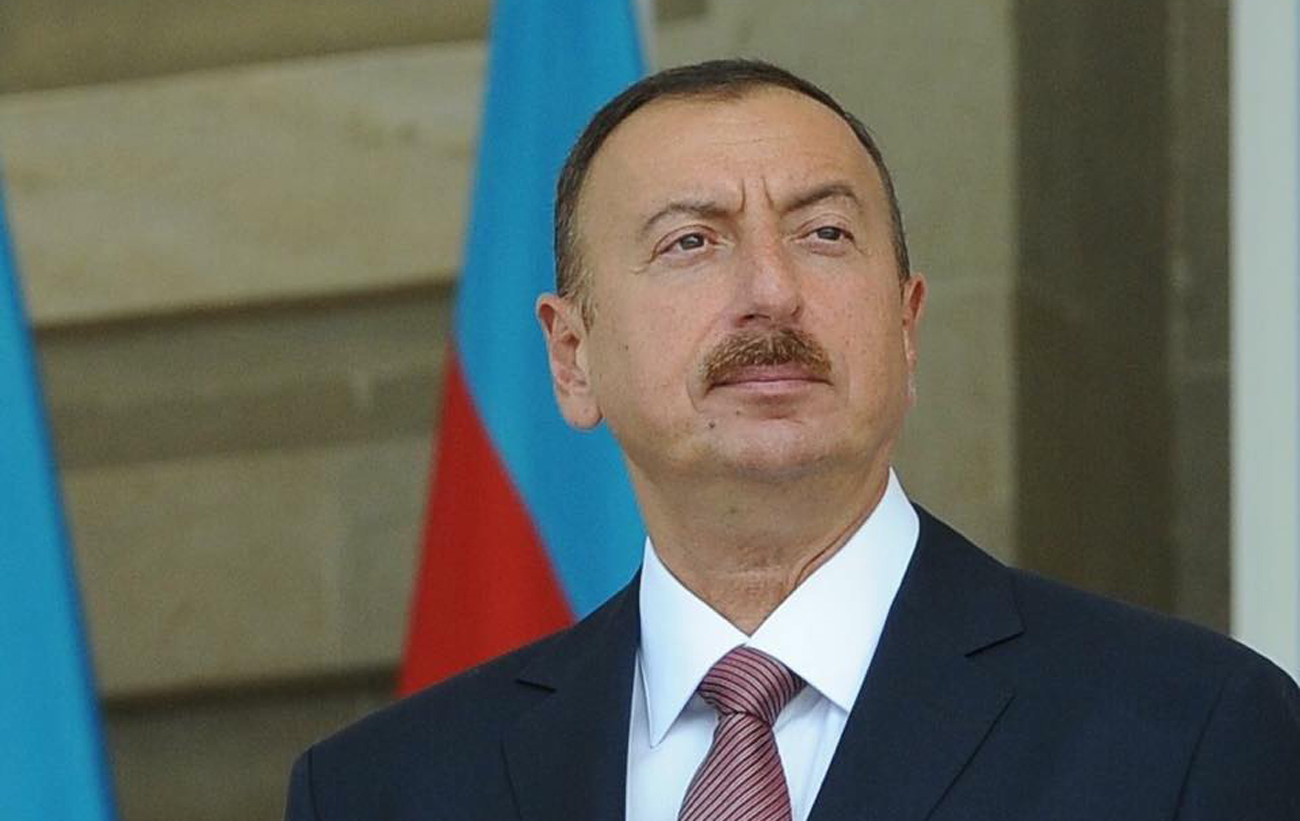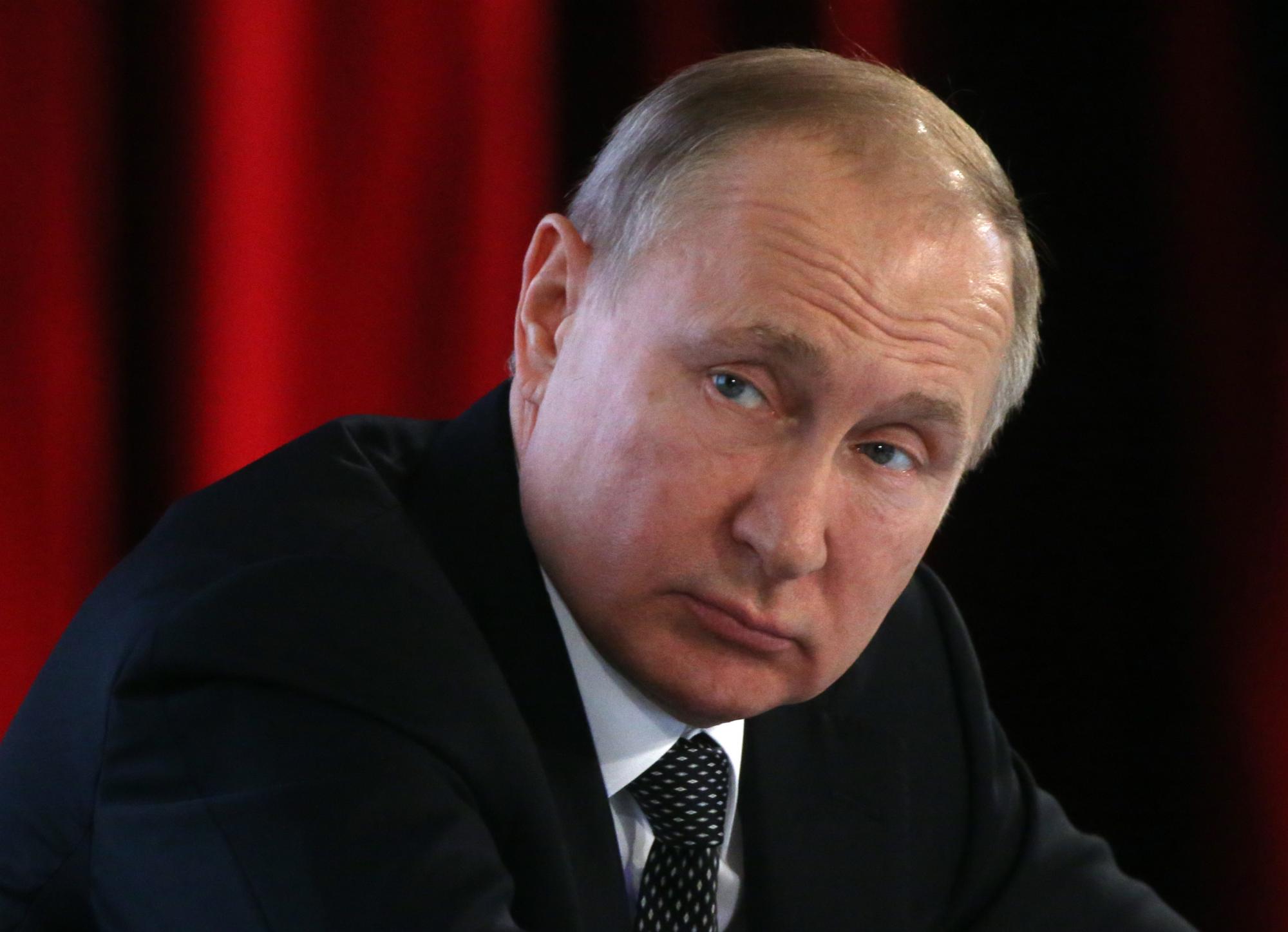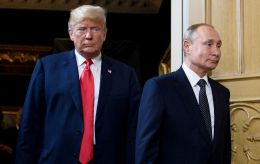Whose Karabakh? How a 30-year Azerbaijan-Armenia conflict 'ended' in a day
 Photo: Armenian forces have suffered a final defeat and must withdraw from Nagorno-Karabakh (Getty Images)
Photo: Armenian forces have suffered a final defeat and must withdraw from Nagorno-Karabakh (Getty Images)
The recent escalation in Nagorno-Karabakh has ended with the capitulation of the unrecognized republic, which existed for 32 years. According to agreements, the rebellious region acknowledges the authority of Azerbaijan and will be reintegrated into its territory.
To prepare this report, sources such as the News of Armenia agency, news.am portal, Azerbaijani media Minval, Reuters, statements by Armenian Prime Minister Nikol Pashinyan, and the RBC-Ukraine column of Ukrainian Institute for the Future analyst Iliya Kusa were used.
Capitulation on second day
On the eve, Azerbaijan resumed hostilities in Nagorno-Karabakh. Official Baku declared them as a local anti-terrorist operation, demanding the withdrawal of Armenian forces and the dissolution of the government of the unrecognized Nagorno-Karabakh Republic (NKR).
The Azerbaijani army used missile and artillery strikes, combat aviation, and UAV strikes. Overwhelming forces broke through in several places, gaining control of heights and strategic road crossings.
 Photo: Karabakh forces were unable to resist the Azerbaijani army (Getty Images)
Photo: Karabakh forces were unable to resist the Azerbaijani army (Getty Images)
The so-called "authority" of NKR reported heavy losses. Against this backdrop, on September 20, they basically capitulated.
"In the current situation, the actions of the international community towards ending the war and settling the situation are insufficient. Considering all this, the government of the Republic of Artsakh (the Armenian name for NKR) accepts the proposal for a ceasefire from the Russian contingent command carrying out a peacekeeping mission," the statement said.
The ceasefire came into effect at 1 pm local time (12 pm Kyiv time). In fact, the entire operation lasted less than 24 hours.
The intensity of shelling has decreased, but it has not completely stopped. Former NKR Minister of Defense Artak Beglaryan reported artillery shelling near Stepanakert and significant losses after the announced ceasefire.
What Azerbaijan says
The Ministry of Defense of Azerbaijan has outlined the conditions for the cessation of hostilities.
Firstly, Armenian forces in Nagorno-Karabakh and illegal armed formations need to be completely disarmed, withdrawing from combat positions and posts. Armenian military personnel must leave these territories, and the NKR army will be disbanded.
Secondly, Armenian forces will surrender all weapons and heavy equipment. The implementation of all these conditions will be coordinated with the Russian "peacekeepers."
 Photo: Ilham Aliyev is preparing to meet with representatives of the Armenian Karabakh (facebook.com/LiderIlhamAliyev)
Photo: Ilham Aliyev is preparing to meet with representatives of the Armenian Karabakh (facebook.com/LiderIlhamAliyev)
As the spokesperson for the Azerbaijani Ministry of Defense, Anar Eyvazov stated, conditions are being formed for the voluntary withdrawal of Armenian forces from the Karabakh region. They will be accompanied by Azerbaijani military personnel. No strikes will be made against the retreating forces.
The administration of President Ilham Aliyev has announced a meeting with representatives of the Armenian residents of Karabakh to discuss reintegration based on the constitution and laws of Azerbaijan. It will take place on September 21 in Yevlakh, a city in Azerbaijan.
What Russia says
The day before, Armenia's Secretary of the Security Council, Armen Grigoryan, accused Russia of not fulfilling its obligations to protect Nagorno-Karabakh.
"We do not accept such accusations against us, especially after the official decision of the Armenian side to recognize Karabakh as part of Azerbaijan. De jure, we are talking about the actions of the Republic of Azerbaijan on its territory. Therefore, such accusations against us are absolutely groundless," said Dmitry Peskov, the spokesperson for the Russian President.
Currently, a telephone conversation between Vladimir Putin and Armenian Prime Minister Nikol Pashinyan is expected. Contacts with the Azerbaijani side continue at a "working level," and a conversation with Azerbaijani President Ilham Aliyev will be organized if necessary, Peskov adds.

Photo: Vladimir Putin dismissed allegations that Moscow abandoned its commitment to protect Nagorno-Karabakh (Getty Images)
The Russian Ministry of Defense confirmed the ceasefire agreement, stating that the deal was reached through the mediation of the "peacekeeping contingent."
Meanwhile, the head of the International Affairs Committee of the Russian State Duma, Leonid Slutsky, claimed that it was Pashinyan who "did the main work in recognizing Karabakh as Azerbaijani territory."
President Putin also commented on the Karabakh events. "Our peacekeepers are actively working with all parties involved in this conflict, doing everything possible to protect the civilian population. We are in constant contact with the authorities in Yerevan and Baku, and we hope to achieve de-escalation and resolve the situation peacefully," he said.
What Armenia says
Yesterday, Armenian Prime Minister Nikol Pashinyan claimed that there were no Armenian troops in Nagorno-Karabakh, so Yerevan would not participate in military actions.
Today, the Armenian Ministry of Foreign Affairs stated that theoretically, the people of Karabakh could live under Azerbaijani authority, but dialogue must be established. Prime Minister Pashinyan also made a statement.
According to him, Yerevan did not participate in the Baku-Stepanakert negotiations, accepting the current decision. Armenian forces have not been in Nagorno-Karabakh since 2021.
"The mention of Armenia in the unrelated to Armenia text (of the ceasefire agreement) justifies my statements yesterday that one of the goals of the attack on Nagorno-Karabakh was to involve Armenia in the fighting. If Armenia could have been involved, the ultimate goal would have been the independence and sovereignty of Armenia," Pashinyan said.
He also expressed hope that Russian "peacekeepers" would protect civilians.
"If the peacekeepers have made such a proposal, it means that they are fully and without exception committed to ensuring the safety of Armenians in Nagorno-Karabakh," emphasized the prime minister.

Photo: Nikol Pashinyan states Armenia's non-interference as it has no troops in Nagorno-Karabakh (Getty Images)
However, he is concerned that the fighting has not completely ceased.
"The latest information that has reached me indicates that the intensity of the battles has significantly decreased. We hope that military escalation will not continue, as stability and cessation of hostilities are crucial in such circumstances," Pashinyan added.
War in 24 hours: Key events
Prior to the operation, the Azerbaijani side accused the Armenian Armed Forces of shelling their positions in Nagorno-Karabakh. The formal reason was the explosion of a vehicle of the Azerbaijan State Agency for Automobile Roads on the Ahmedbeyli-Fizuli-Shusha highway on September 19. According to Baku, both military personnel and civilians were killed.
The Ministry of Foreign Affairs called the military measures a response to military provocations and terrorist acts by Armenia. Azerbaijani authorities demanded the unrecognized NKR to self-dissolve and all illegal armed groups have to hand over weaponry.
The main battles took place in the eastern part of the region, and Azerbaijani troops advanced towards the cities of Martuni and Asgaran. The mayor of Martuni, the second-largest city after Stepanakert, was killed in the fighting.
There were reports of artillery strikes on Stepanakert (the capital of NKR), sirens sounded in the city, and there were interruptions in communication. Videos of the destruction of the Tor air defense missile system, electronic warfare complexes, and a destroyed residential building were posted online.
 Photo: destruction in Stepanakert (twitter_com_SiranushSargsy1)
Photo: destruction in Stepanakert (twitter_com_SiranushSargsy1)
Azerbaijan's official statements claimed the use of precision weapons against Armenian military facilities. However, they called on civilian residents to evacuate through the Lachin corridor.
The Armenian side initially stated that Azerbaijan was spreading disinformation. However, Pashinyan called for an emergency meeting of the Security Council, where he announced a breakthrough in the line of contact in Nagorno-Karabakh and that Azerbaijani forces had taken control of several settlements.
According to Anar Eyvazov, the spokesperson of the Azerbaijani Ministry of Defense, the army has captured more than 90 combat and strategic positions of the Armenian Armed Forces.
Military casualties on both sides are unknown. Ruben Vardanyan, the former State Minister of NKR, announced that about 100 people were killed in Nagorno-Karabakh, with hundreds more injured.
Prerequisites are in the results of the Second Karabakh War
The previous, Second Nagorno-Karabakh War erupted in the fall of 2020 and lasted for 44 days. In September-October, Azerbaijani forces took control of the city of Jabrayil and the town of Hadrut, after that the Armenian front collapsed. As a result, Baku gained control over significant territories.
According to the trilateral ceasefire statement of November 9, 2020, Azerbaijan also received the Aghdam, Kalbajar, and Lachin districts. A Russian contingent moved to the line of contact. The term of their stay was set at 5 years, with the possibility of extension. At the same time, Armenia committed to completely withdraw its troops from Nagorno-Karabakh.
On the map below, territorial gains by Azerbaijan are marked in green. Yellow represents the areas remaining under NKR control.
 Photo: Territorial results of the Second Karabakh war (t.me.mozhemobyasnit)
Photo: Territorial results of the Second Karabakh war (t.me.mozhemobyasnit)
Analyst Iliya Kusa calls the current escalation an expected one.
"The status quo that had emerged after the 44-day war in 2020 didn't satisfy Azerbaijan, Armenia, and, to some extent, Türkiye," he writes in a column for RBC-Ukraine.
In particular, Ilham Aliyev did not achieve a full victory that would have put an end to the Karabakh issue and cemented his name in history. Control over Nagorno-Karabakh is necessary for him, among other reasons, to open transport corridors and gain new transit between East and West, South and North.
Kusa notes that for Armenia, this war became a crash test for the post-Soviet political system, the foundations of which had long ceased to serve the interests of Armenian society.
As soon as Karabakh falls under Azerbaijani control, Armenia can assert itself more freely on the world stage and gain greater independence from Russia, which maintained control over Yerevan through the "Karabakh hook," the analyst believes.

